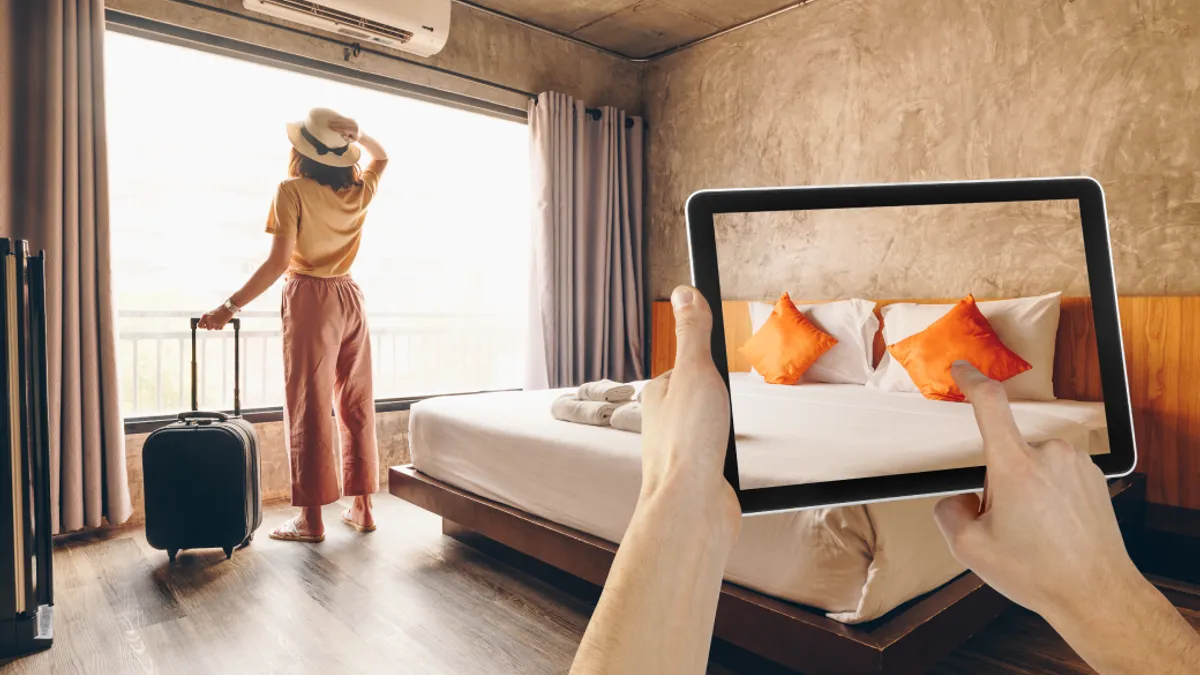Technology has become key for hoteliers to stay competitive in the industry and satisfy their guests. However, adjusting to new technology can be a challenge in a world where trends and preferences are also ever-changing. But hotels have an advantage – they can look to how businesses in adjacent industries have tackled digital transformation, and learn from the most successful strategies. Urdur Anna Bjornsdottir, Consulting Manager at technology firm LS Retail, has extensive experience supporting digital transformation in hotels, travel companies and ferries. She believes many hospitality businesses are missing out on opportunities to use technology to deliver the experiences modern guests expect. “In the past few years, retail has undergone dramatic changes. Retailers have had to completely transform their ways of working and rethink the customer journey – and hoteliers can steal a page from their book,” she says.
Boosting convenience with contactless technologies
Contactless technologies, which support quicker experiences with little interaction, have become the norm in hospitality. In the survey “Hospitality in 2025: Automated, Intelligent…and More Personal” conducted by Skift.com, 39% of travelers reported wanting a fully contactless experience for all basic hotel transactions, including check-in/check-out, food and beverage, room keys and more.
The retail industry can give hoteliers fresh ideas on how to use technology to create high-class, zero-hassle experiences. “Say a guest wants to order refreshments while on the golf course, or at the pool,” says Bjornsdottir. “You just need to add a QR code that links to the menu on the golf card or by the lounge chair to simplify the experience. Your guest can check the menu on their smartphone, order and get their items delivered where they are. And if you use the same software to manage your whole property, your guest can decide to be billed to their room or on their credit card, depending on their preference.” Adding these types of contactless experiences makes the guest journey more convenient and lets hotels meet guest demands with minimal hassle.
Personalizing experiences using customer data
Hotels still have a long way to go when it comes to harnessing customer data. The McKinsey article “The Value of Getting Personalization Right – or Wrong – is Multiplying” reveals that 71% of customers want businesses to provide personalized experiences, and 76% are frustrated when this does not occur. To meet these expectations, businesses need to be able to both collect and connect guest information.
“One of the biggest opportunities for the hospitality industry is around collecting and unifying customer data,” says Urdur Anna Bjornsdottir. “To get this right, hotels need to direct guests to book on their website instead of third-party platforms. They also must stop thinking that they simply sell rooms, and start considering the whole guest experience instead. If guests can book their entire stay on the hotel website — not just accommodation and dining, but also a visit to a winery, amusement park tickets, a boat trip, bike rental and other off-property experiences — hospitality companies can gain extremely valuable guest data. They can then use this information to build their offering and communication, so it all revolves around what guests desire and are looking for.”
Thinking about guests, rather than rooms, as the core of the business is a huge mental shift for hotels – but they just need look at how the retail industry does it. Making the guest the center of the business means that information on past stays, preferences and personal details can be used to surprise and delight the returning guest with their favorite newspaper, or reach out with offers to their taste, adding value before, during and between stays.
Increasing upselling opportunities
To centralize and unify customer data into what Bjornsdottir calls “a single digital identity,” hotels need technology that gives them a clear view of all bookings and reservations, in all their facilities and locations wherever there’s a point of sale — not just rooms, but also spa, restaurant, tennis court and other amenities and services. With a single digital identity, hotels can maximize sales opportunities whenever the opportunity arises. For example, if a property’s spa has an open massage slot due to a last-minute cancellation, they could push a discounted offer for the massage to the mobile device of guests on the property. “A single digital customer identity helps with upselling, simplifies the job of operators and employees and helps deliver better guest experiences,” concludes Bjornsdottir.








